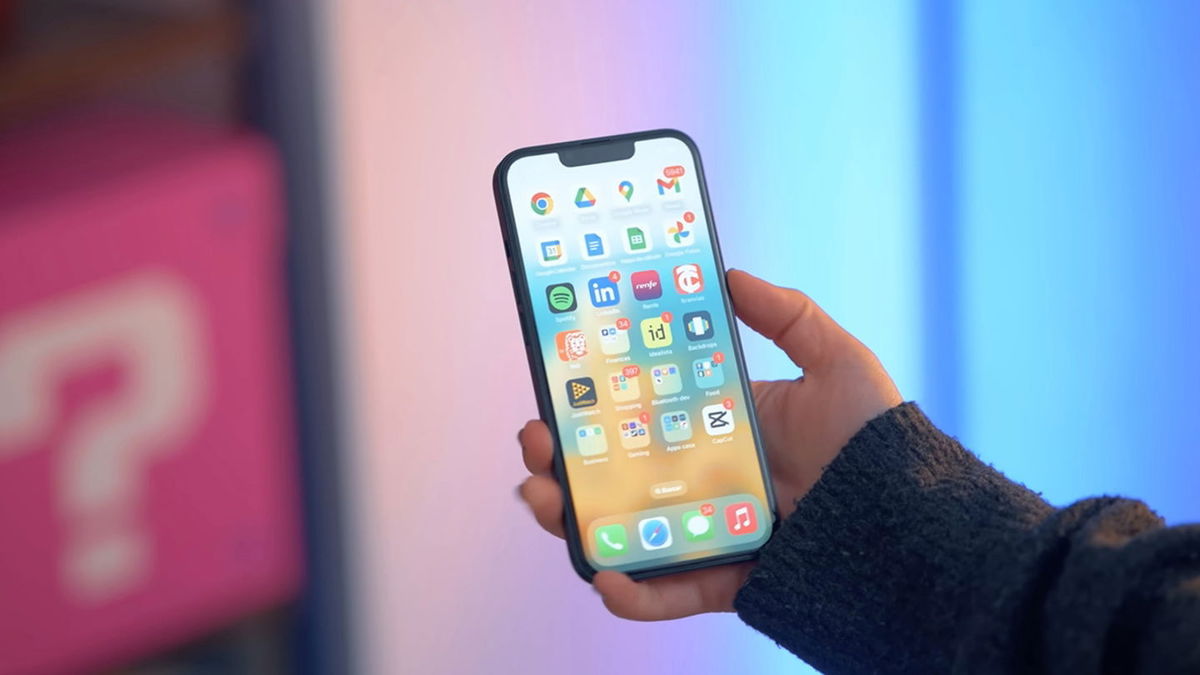The year 2024 has been very busy for the Brazilian public in terms of cyber security. Although digital preservation systems have improved over time, The sophistication and sophistication of threats increases proportionately.
As the months went by, new scams targeting bank accounts and public access credentials emerged at an increasing rate. The scams included the popular Pix, the use of artificial intelligence (AI) to create fake content, and a particular slot game that has become an alarming phenomenon in the country.
THE TecMundo reported and warned about these frauds throughout the year. Next, remember which ones are the main ones and be prepared, as most of them are expected to continue into 2025.
1. Fake SMS from Post Office and Driving License
SMS was used less and less due to the insecurity of this messaging system. Yet he It was used for financial fraud in Brazil by taking advantage of two important themes For the public: postal money orders and driver’s license renewal.
Their operations are the same: bulk text message with fake link and urgent alertLike orders stuck with the IRS or an expired driver’s license. To date, it has not been clarified how the fraudsters gained access to the phone database.
2. Accidental Pix
Pix is the most popular payment method in Brazil today and is simple to use but still has some loopholes. one of them Includes Special Return Mechanism (MED)This has been used by fraudsters to falsely claim that they have made payments and “doubled” the value of the transfers.

The method is complex and involves several steps that take advantage of the generosity of those on the other side who are mistakenly convinced that they have received some amount. The victim returns the requested amount, but the amount received has already been reversed — In other words, the person only lost the money in the account.
Banks’ guidance is that if you receive a Pix by mistake, you should use the official MED tool to re-send the amount to the same original account.
3. Little Tiger Game
The year 2024 was dominated by mobile slot gaming, which is already considered a major financial and mental health risk in Brazil. The Little Tiger Game and its variants, whether involving other animals or similar types of virtual casinos, were a huge phenomenon with empty promises of winnings and also opened up space for fraud.
In addition to exploiting a loophole in Brazilian law to continue its operations, Tigrinho Game operates with little transparency regarding winnings. Moreover, not every application comes from a reliable platform, which leaves room for scams that do not provide the money earned or do their best to prevent you from withdrawing the amounts.
Influencers who receive large sums of money to promote the game continue to post on social media, sometimes even with false pretenses; despite some cases of arrests of those involved already occurring in Brazil.
4. Fake bank center
Fake call center scams dominated 2023 and were also one of the most frequent this year in terms of number of attempts. During the day, Brazilians can take: several calls from purported banks warning of blocked transfersquestionable purchases or possible data theft – even if you are not a customer of the institution in question.
Even though we started with a robot, The call also includes a scammer asking for bank information and steals the victims’ balance. This increasingly sophisticated approach has led many people to permanently stop answering calls on their mobile phones, at least from numbers not added to their contacts.
5. Use of CPF in Popular Pharmacy
This scam may have involved many people who did not suspect they were victims of irregular use of data. In this report prepared in April 2024, fraudsters Medicines registered in the names of people who have never requested them from Farmácia Popular products.

They would then withdraw the drug using public funds on behalf of others. Cases have been recorded for yearsbut only now has it been discovered and made public.
6. Conversion of pix data into invoices
Two national payment providers, Pix and boleto banking, were combined in the same scam this year.
The scheme is simple: vehicle Reboleto It was allowed to change data in expired documents, so Scammers add their own data and receive transfers through orange accounts. Then inform the victim that their payment has not been made yet and wait for the money to be sent.
7. Falsification of public institution websites
Have you ever encountered completely different content when you visited the website of a state undersecretariat or a university? Or have you noticed that search engine results for official pages actually look like betting ads?

This occurred quite frequently throughout the year; Thanks to an application called. falsify and exploiting old pages that still have some vulnerabilities. The content on these sites is often replaced with something fake, such as bookmakers of questionable origin.
8. Corinthians Crowdfunding
Passion for a football club can cause users to lower their guard and fall for simple phishing scams. This situation Campaign for Corinthians fans to raise money and help pay off debt It’s about the club’s stadium.

Shortly after the campaign began, multiple fake websites appeared that looked identical to the original, but with different data to send pix. Corinthians deleted hundreds of pages, but some stayed in the air for a long time and new variants continue to emerge.
9. Scam Car
An arrest in São Paulo in July revealed an interesting scam: a car that travels around the noble parts of the city It has the ability to send SMS to nearby people with a structure with an antenna in its trunk.

The messages in question Messages impersonating banks or the governmentIt usually involves requesting a transfer via Pix to broadcast a service and a fake website that can also be used to steal data.
10. Fake Pegasus infection
Pegasus spyware was one of the most serious threats to smartphone privacy a few years ago, but is now only found rarely and against specific targets such as politicians and journalists.
Despite this, a scam has been detected in the country where people were warned via email about a fake Pegasus infection. Message Seeks payment as a way to eliminate the threatwhich is completely wrong. Various methods of breaking into a bank and stealing intimate photos also wander around and they are equally wrong.
11. Audio and video deepfakes with celebrities
Another scam that circulated in various forms throughout the year was posts on social networks that featured a deepfake of a celebrity promoting an app or service, some even in the form of highlighted ads.
Another type of fraud on the market: the online game Plinko promises easy money.
Although there are some versions that theoretically pay (in a gambling format), there are many fake versions promoted even by Neymar’s deepfakes. pic.twitter.com/t7kJhopdRV— Carlos Palmeira (@chpalmeira) April 25, 2024
was registered cases of voice or facial spoofing including player Neymar Jr., minister Fernando Haddad, journalists from Rede Globo and even Brazilian national team coach Dorival Júnior. In all cases, the services offered are fraudulent, whether from slot games, betting houses or false donation requests.
Source: Tec Mundo
I am a passionate and hardworking journalist with an eye for detail. I specialize in the field of news reporting, and have been writing for Gadget Onus, a renowned online news site, since 2019. As the author of their Hot News section, I’m proud to be at the forefront of today’s headlines and current affairs.










